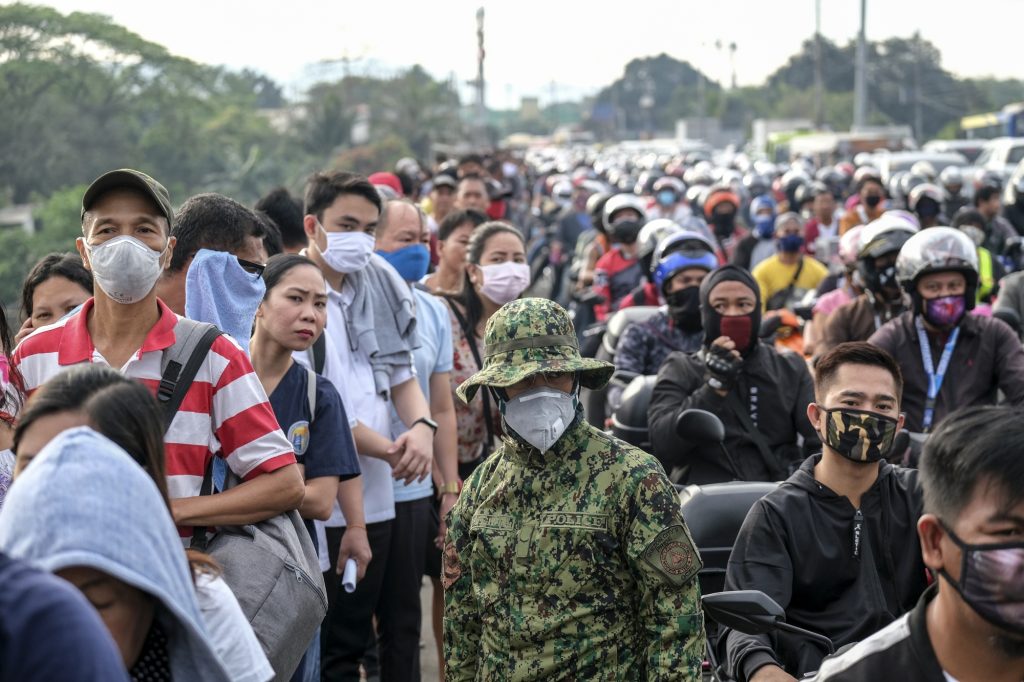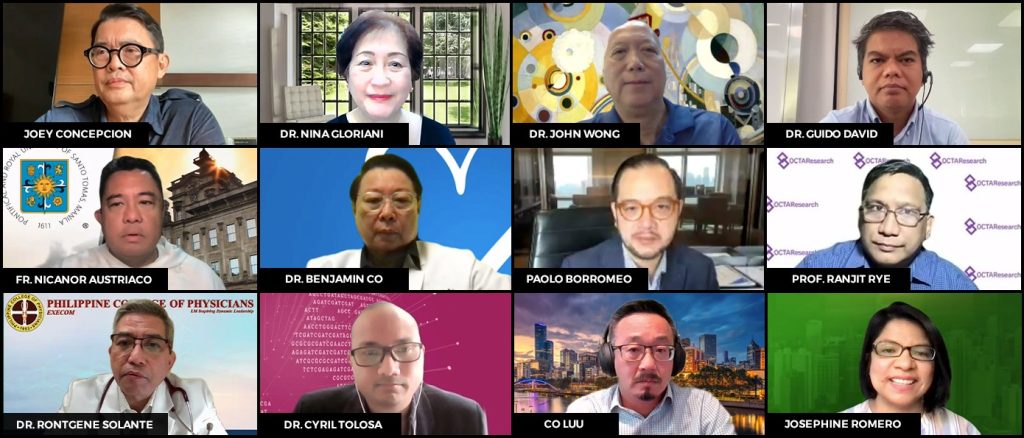
Filipino SMEs win in the 2022 ASEAN Business Awards
November 7, 2022
Building and Improving Lives
November 10, 2022
Concepcion, Experts Discuss Philippines Transition from COVID At Go Negosyo Town Hall
As cases remain manageable and hospitalizations low, the Philippines seems to be headed for a transition from Covid. The overall strategy is now tending toward shifting the responsibility to the people, and supporting efforts through a host of responses from the private sector.
At the recent Go Negosyo town hall “Sustaining Public Health and Immunity for Nation Building”, Go Negosyo founder Joey Concepcion joined medical experts and health executives in assessing the way forward for the Philippines after almost three years of the Covid pandemic.
“Whatever health initiatives we have done in the past, we should continue…we’ll eventually transition to a government buying the vaccine for us as we move to a more manageable Covid situation,” said Concepcion. It has been proposed to the Department of Health (DOH) that private hospitals and other healthcare facilities be allowed to purchase and administer bivalent vaccines, which have yet to have the Certificate of Product Registration that will make them available commercially.
Dr. Benjamin Co, Chief Medical Officer of Metro Pacific Hospital Holdings and OCTA Research Fellow, said private hospitals can make it available to those who are willing to pay, so that government resources and vaccines are not wasted. “All the private hospitals, all the other private institutions can actually make it available to the private sector for those who are willing to pay,” he said.
Concepcion said vaccinations must continue, especially as the country’s economy faces strong headwinds.
Fr. Nicanor Austriaco of OCTA Research said the country should now focus on sustainable strategies. “We should start thinking about long-term planning,” he said, adding that regular anti-Covid vaccinations may happen every six months or yearly. He said that he is more optimistic than the DOH predictions of 2,500 to 18,000 daily cases for November and December, even with the lifting of indoor mask mandates and the return of in-person classes. He believes that the number of cases will continue to drop, unless a new variant arrives that is substantially more immune-evasive than the XBB or XBC Omicron subvariants.
He believes that an XBB and XBC surge – which caused an increase of cases in other countries – has already happened in the Philippines, suggesting robust population immunity. The resulting antibodies, he said, may also be able to recognize the BQ.1 sublineage of Omicron, which is presently dominant in the US and the UK.
“Government policy matters, but individual behavior also matters, maybe even more,” said Dr. Nina Gloriani, Chairperson of the Vaccine Expert Panel of the Technical Working Group for Covid-19 Vaccines. She added that proven health strategies continue to work, even against the new variants.
Increasing the number of vaccinations remains key to maintaining protection. “Coverage, rather than vaccine type, is a much stronger predictor of protection,” said Dr. Gloriani. Booster vaccinations in the country have hovered at 26 percent.
Infectious diseases expert and Vaccine Expert Panel member Dr. Rontgene Solante said the approach will be about protecting the vulnerable population with vaccines and anti-Covid treatments, including monoclonal antibodies.
Epidemiologist and Senior Technical Adviser of EpiMetrics Dr. John Wong said social capital, or the people’s trust, will be important in enabling the country to move forward from Covid. He also reiterated the role of the private sector in making workplaces safer, an opinion that was echoed by Dr. Solante.
They said that the private sector will need to improve ventilation in workplaces, continue to implement health protocols, and provide for the vulnerable among the workforce, including making booster vaccinations and antiviral medications available.
Ayala Healthcare President and CEO Paolo Borromeo believes there are opportunities in public-private sector cooperation, and more investments in the healthcare industry will contribute to efforts to recover from Covid.
Representatives from vaccine manufacturers AstraZeneca and Moderna said that, beyond supply issues, the bigger question is acceptance of future vaccines. “It’s not about providing supply but increasing confidence for people to get the boosters,” said AstraZeneca’s Associate Director of Medical Affairs, Dr. Cyril Tolosa.
Terminology is also important. Moderna’s Medical Director for APAC Partner Markets Coo Lyuu said that, communication-wise, telling people to update their vaccines proved to be more effective rather than telling people to get boostered.
The two pharma companies said that they continue to work with the government to make the vaccines readily available. “There are certain challenges. This is not the typical process,” said Dr. Tolosa. It was explained that what would normally be four years of randomized trials is now real-world evidence from multiple sources which have to be put together.
“We very quickly had to adapt to make the vaccine available. Now that we are in this phase of transition, we will work and continue to work with regulatory authorities to get the data lined up so we get authorization,” said Luu.
Dr. Solante said that the challenge is now with the uncertainty given how fast the virus mutates.
“What is clear is continued surveillance and testing, monitoring vaccine effectiveness will be an important parameter,” he said.


2/F RFM Corporate Center, Pioneer cor. Sheridan Sts. Mandaluyong City, Metro Manila, Philippines

